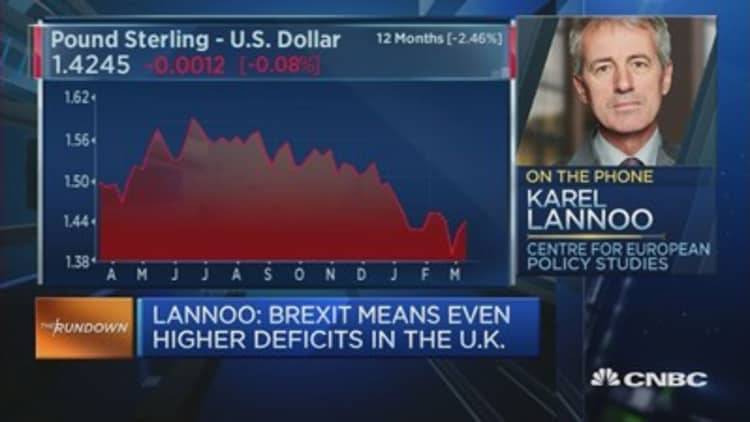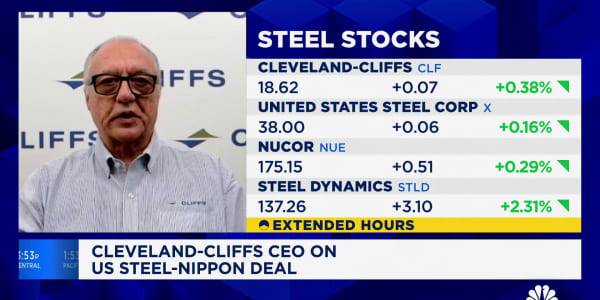The European Central Bank is bailing out the region's bond market and, in doing so, boosting beleaguered banks.
The ECB's announcement last week to increase corporate bond buying to 80 billion euros per month triggered a rush of companies stampeding to lenders and looking to finance deals. Anheuser-Busch InBev followed up on a $46 billion bond deal by issuing more than 13 billion euros of debt to European investors this week, a boost for banks in Europe that worked on the deal. Deutsche Telekom also priced a 4.5 billion-euro deal.
Getting a flood of corporate bond issuances to close out a first quarter when banks globally came under fire for the quality of their energy loans has the potential to reverse an ugly trend before earnings are reported.
"The banks are poised for some rebound," said Julien Jarmoszko, senior investment manager at S&P Global Market Intelligence. "The European banks are a lot stronger than they used to be."
Right now, the euro-denominated bond market is as frothy as it's ever been. More than $38 billion in investment-grade deals were done so far this week, according to Dealogic. With one day to go, the all-time high of $44 billion in issuances, from mid-2008, is well within striking distance (Dealogic's data tracks back to 1995). Further, jumbo transactions have fueled this rise in issuances. There have been only 25 euro-denominated bond issuances this week, compared to 72 deals in 2008 when the record was set.

While the bond market has turned around in Europe, banks are still waiting for a rebound in their share prices.
Similar to U.S. banks, which saw shares hammered in trading to begin 2016, EU bank stocks plummeted to begin the year. The iShares MSCI Europe Financials ETF, which invests in banks including Allianz, HSBC, UBS and Lloyd's Banking Group, has fallen more than 17 percent over the last 12 months and nearly 9 percent so far in 2016, but it factors in a rebound more than a month ago as global markets and bank stocks bounced back from the worst of investor fears.
Read MoreEuropean banks face prolonged energy exposure
EU banks themselves rushed to make issuances after news of the central bank's plans broke. UBS raised fresh contingent convertible bonds earlier this week, considered the riskiest class of bank debt, and banks including Deutsche Bank and the Royal Bank of Scotland also reportedly sought to sell bonds.
There are other silver linings for European banks, as well.
Despite dour news for investment banking divisions — American banks' share of European investment banking revenue recently hit a high not seen since 2000 — EU banks can take solace in that they have increasingly elbowed U.S. banks away from deal financing.
This year, European banks' wallet share for leveraged lending grew to 80 percent of the market as of last Friday, according to Dealogic. That is compared to a piddling 11 percent of wallet share for leveraged lending for U.S. banks. It's the greatest disparity in this category since 2008, when EU banks dominated a whopping 86 percent of the leveraged lending market, the highest amount Dealogic recorded since 1995.
The same goes for investment-grade deals in Europe: As of Thursday, Europe banks accounted for 73 percent of the wallet share of investment-grade deals, representing a high not seen since 2011.
But U.S. banks haven't been totally left out by the ECB's surprise stimulus.
"More buying of U.S. bonds by European investors following the ECB's easing announced last week should support demand for [investment-grade] paper going forward," BofA Merrill Lynch Global Research analysts wrote this week.






